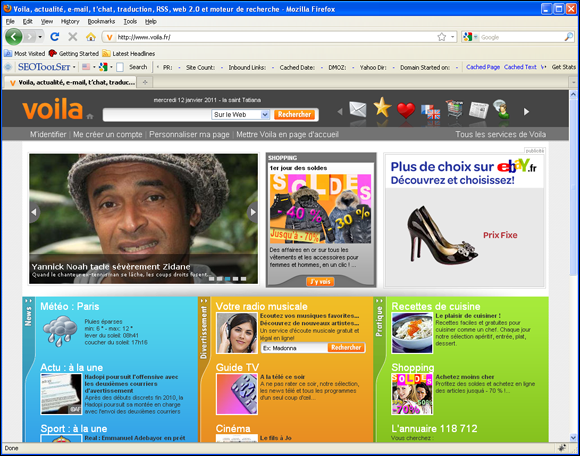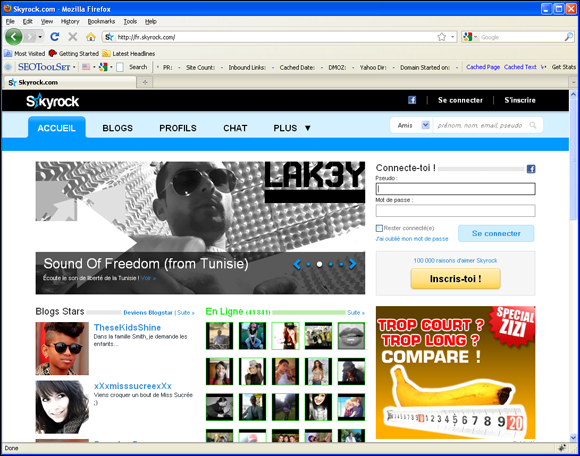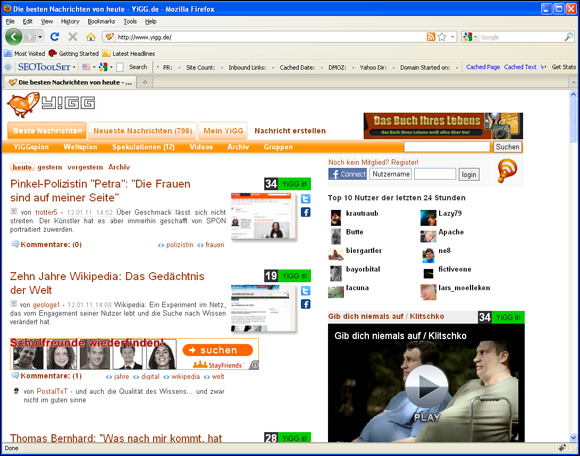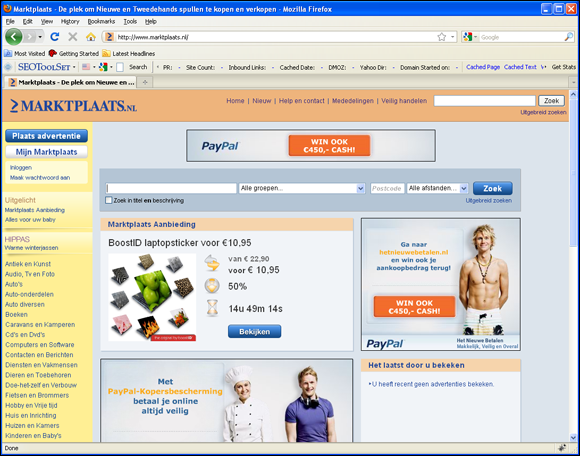Chapter 3
Staking a Claim in Europe
In This Chapter
- Succeeding in the European Union
- Knowing the legal issues in the EU
- Working in the United Kingdom
- Discovering France
- Operating in Germany
- Understanding the Netherlands
Across the pond from the United States lies the European Union (EU). The countries that belong to the EU are subject to certain laws and regulations, and all those countries are actually located within Europe itself.
Succeeding in the EU isn’t as simple as copying and pasting your website into German or French and then hoping the traffic comes to you. You have to consider legal and cultural differences, along with the technical issues that come from running a website in another country. In this chapter, we talk about how to succeed in the European Union, some legal issues you should be aware of, and some specific facts about doing business in the United Kingdom, France, Germany, and the Netherlands that should give you a little more insight into the search markets in the European Union.
Succeeding in the European Union
You might think that getting started with the European Union would be pretty easy. It’s actually not. For one thing, you have to remember that Europe comprises different countries with their own languages and customs, and their own markets for search engines. You can’t create one website for the whole EU and then call it a day.
First, you need to figure out what countries you want to target. This is important in terms of tailoring your marketing campaign. Each country has its own language, culture, and social mores that you need to use when doing your keyword research. For example, in the United States, personal telephones are called cell phones, so when a user does a search, she most likely enters keywords such as [cellphone], [cell phone], [cellular phone], and the like. But in the United Kingdom, personal telephones are referred to as mobiles. So a U.K. user would, for the exact same product, use keywords like [mobile], [mobile telephone], and so on.
You also have to contend with the technical difficulties associated with obtaining and using a proper country code top-level domain (TLD; the letters that follow the final dot of any domain name, for example, .com or .net). A country-code top-level domain, or ccTLD, is a TLD that’s specific to a certain country. The United States has .us, and the United Kingdom has .uk. Users within a specific country are much more likely to trust a website that’s within their own country’s ccTLD than one with a foreign ccTLD.
European users are also much more likely to trust a foreign website if it includes links to sites within their country, especially local links.
Knowing the Legal Issues in the EU
As a marketer to the EU, you benefit somewhat from the fact that all the member countries have agreed on standardized trade policies. However, one thing we have to stress is that the European Union is made up of many different countries, each with its own languages and laws.
For example, France is constantly suing Google over pay per click (PPC) ads (paid advertising that appears in the search results, for which advertisers pay a fee every time a user clicks each ad). In the United States, you can bid on a trademarked keyword and win it if you put up enough money (and the keyword is relevant to your company). In France, this is not the case, and several lawsuits have arisen over this issue. All the high courts in France (the Court of Nanterre, the Court of Paris, and the Court of Appeals of Versailles) have found that bidding on a copyrighted trademark is a copyright infringement.
However, according to the Cour d’Appel de Paris, the French courts have no jurisdiction if the ads in question lead only to websites owned by companies established outside France and appear only on google.co.uk, google.de, and google.ca, but not google.fr (decision of June 6, 2007, Google Inc. and Google France versus Axa et al, CRI 2007, 155 ff). This means that if you have an ad for a trademarked keyword, you can use it as long as you are not a French company and it doesn’t appear on the French version of Google.
Another fun legal issue comes to us from Belgium. Several Belgian newspapers sued Google News for displaying and storing their content. A company called Copiepresse claimed that Google violated Belgian law by keeping archived versions of stories in its search cache and using headlines and excerpts within the Google News service. Google claimed that its activities fell under “fair use” laws, but a Brussels court didn’t agree.
Working within the United Kingdom
It’s tempting to think that optimizing for the U.K. is going to be easy because you’re at least working in the same language. “Aha!” you think, “The United Kingdom is a lot like America because English is the primary language of both.” True — except that they’re really not using the same language at all. English in the U.K. has a lot of spelling conventions that an American spell checker reads as misspelled (the “u” in words like colour and favourable, and an “s” rather than “z” in words like customisation, and so on). British English isn’t exactly like American English, and you need to be well aware of that. There is no faster way to shoot down your credibility than forgetting cultural mores and language differences when working in another country.
It's not just spelling that’s different. U.K. English often uses different words for everyday objects (a cell phone in the U.S. is called a mobile in the U.K., for instance) and different slang terms, and the same word can mean totally different things. These differences can be subtle, but they stick out like a sore thumb to a native. Blogs like Separated by a Common Language (http://separatedbyacommonlanguage.blogspot.com) are good resources for pinpointing the differences between British and American usage.
In the U.K., Google is the predominant search engine, even more so than in the United States, but here are some key differences:
- Google paid some outside agencies in the U.K. to bring people to AdWords (Google’s PPC program), which created two types of PPC agencies in the U.K. — the optimizers (the ones that add value) and the discounters (agencies that rely on how much you can spend). Google has since stopped this practice.
- The U.K. has the Financial Services Authority (FSA), which is a body that regulates financial matters and financial companies like banks. Be aware that all it takes to cause you grief is an email to the FSA.
- In the U.K., people use different currencies because they are members of the EU, so you’ll see euros and British pounds. Multi-currency transactions are difficult to manage and track.
When you use Google, you get two sets of search results. Organic results are the links that naturally match a user’s search, and PPC results are the ads paid for by the advertising companies. When surveyed, more than 80 percent of U.K. respondents said that the organic results offered the best results. Only 6 percent in 2007 and 4.66 percent in 2008 answered that the paid search results gave the best results.
So, how much do U.K. firms spend on search engine optimization? Nine percent of U.K. firms are spending more than £1 million annually on paid search ads. One in six U.K. companies spends more than £50,000 on search engine optimization.
Compared to Internet users globally, U.K. users are quite confident online. They’re not scared to give their credit card information to a brand they recognize. They’re also a little more search engine savvy than a typical American user.
Certain Internet issues are of concern to the U.K. public:
- The U.K. has concerns about child safety issues, especially when it comes to online predators. Many people want to adopt a U.S.-like Amber Alert system, where automatic calls are sent out looking for missing children.
- Social networking sites can create problems at work, undermining employee relationships through gossip and also as a recruitment issue. People in the U.K. use social networking sites as much as Americans do. Unfortunately, this can be a bit of a problem for companies doing research on potential employees and finding, say, evidence of a potential employee doing questionable things on a social networking profile.
You need to be aware of two laws when you expand into the U.K. market. The first is the John Doe law. The term comes from an 18th-century law. This particular law lets court proceedings go ahead even when the identity of the person is unknown. When it comes to online marketing, after someone has obtained a court order, a plaintiff can go to the ISPs (Internet service providers) or even the search engines to prevent the defendant from entering sensitive information on a blog or website.
The second law is known as the Spartacus Order. The person responsible for anonymous activities must come forward and make himself known to the court, or he could be found in contempt of court — a whole extra set of charges that the offending party may want to avoid. This means that if someone files suit against you, even if she doesn't know who you are (using the John Doe law), and you fail to come forward, you’re actually in danger of contempt of court. For online activities, in which the person behind a website may be unknown and untrackable, this is another level of trouble.
Discovering France
In France, more than 44 million people are connected via the Internet. But the digital economy makes up only 6 percent of the GNP (gross national product) in France, as opposed to 14 percent in the United States. More than 37 percent of the population uses search engines several times a week, whereas almost 50 percent uses them several times a month. Most users between 45 and 54 say they don’t look past the first page of results, and women are less likely to go to the second page than men.
The search engine market in France looks something like this: Google is the biggest with 87 percent, and then Bing with 3 percent, Yahoo with 3 percent, Voila (www.voila.fr, a French search engine, shown in Figure 3-1) at 2 percent, with the rest of the pack making up the remaining 5 percent.

Figure 3-1: Voila is a French search engine.
You have a couple of ways to use Google in France. You can use the French version of Google (www.google.fr) or you can use the English version (www.google.com) and ask for your results in French. Most people in France, not surprisingly, use the French version of Google. Many of the most visited sites within France are French-specific websites, such as Orange (www.orange.fr), Free (www.free.fr), PagesJaunes (www.pagesjaunes.fr), and Copains d’Avant (http://copainsdavant.linternaute.com). In 2008, French businesses planned to invest 29 percent of their resources in search marketing (22 percent was invested in 2007).
The most-searched subject categories in France aren’t much different than in the U.S.: entertainment, computers, and business. French searchers look for entertainment more than the U.S. markets do, however. The top search terms include [YouTube], [jeux] (games), and [meteo] (weather). This can be useful to you in terms of figuring out which keywords you want to target while working in France; however, remember that France is very strict about copyrighted keywords. You cannot use a copyrighted keyword that you do not own in any way. Although U.S. legislators have split on the issue, in France, nearly every case has gone the copyright holder's way. Copyrighted keywords cannot be used in metadata or to trigger paid search ads.
Seasons differ between countries. In the Unites States, the Christmas season officially begins the Friday after Thanksgiving. In other countries, the Christmas season can begin even earlier because there’s not another holiday in the way. Travel is also different in France (where people typically have five weeks of paid vacation), so holiday-related search words are in high use. You need to adjust your marketing strategy to take advantage of these differences.
Online social networks are booming in France, and the traffic is proportionately huge compared to the United States. Skyrock (http://fr.skyrock.com), a French social networking site that’s a lot like MySpace, is the big social media site (see Figure 3-2), and Copains d’Avant (http://copainsdavant.linternaute.com) is like Classmates.com for France, popular for reconnecting with old schoolmates and friends.

Figure 3-2: Skyrock is a popular social networking site for France.
The French don’t often use cell phones to conduct online searches. Fewer than 3 percent of mobile-phone users in France said they’ve used a phone to find information via search engines.
Here are some special French search engine issues you should keep in mind:
- You can submit your site’s URL to most of the French search engines, but generally only if you have French-language content.
- If you put an accent on a word, it may change the meaning of the word. If you ignore accentuation, the French word for diaper is the same as for making love.
- Many French search engines analyze the word environment to determine the meaning of a word, even without accents, but results aren’t perfect.
Operating in Germany
Germany is a country of 82.3 million people. Of that number, 65 million people (79 percent) are online. The equivalent of $49 billion was spent online by Germans in 2007. As of 2009, Germany’s GDP (gross domestic product) per capita was about $40,670. It’s a pretty healthy economy.
The search engine landscape in Germany looks a little like this: Google Deutschland (www.google.de) has 95 to 98 percent market share. Germans use Yahoo and Ask.com, too, but they almost never use Bing. If you’re going to operate in Germany, it’s probably best to concentrate on Google Deutschland.
Local search, which is a search that is specifically targeted to businesses within the searcher’s local area, is almost nonexistent in Germany. It’s still in the starting stages, but it is growing.
Germany has 11 million .de domains. If you’re thinking about going into Germany, you need to get a .de domain. Don’t use a subdomain (a dependent domain set up within the primary domain, such as de.classiccarcustomization.com); it will not have as much success as a country-specific top-level domain.
To obtain a .de web address, you need to have a branch of your company physically operating in Germany, which means you need a local contact. The server that will be hosting your .de website must also physically reside in Germany. Remember when we said that the rules are different for every country? This is a good example.
Credit cards are just becoming popular in Germany. Not a whole lot of purchases are made with credit cards. (Many Germans are leery of giving out personal information over the Internet.) So make sure that they have an alternative way to pay in Germany if you are running an e-commerce (online retail) business.
Germans are also known to spend a lot of time researching. This is something to keep in mind if you’re running a research site (a website geared toward providing information), as opposed to an e-commerce site; you might do well in Germany.
If you’re running an e-commerce site in Germany, here are some steps you can take to ensure that the process is as easy as possible for both you and your German users:
- State on your landing page that you can ship worldwide and make it clear that it's easy for you to do so. A landing page is the page where a user arrives on your website. (See Book II, Chapter 4, Book III, Chapter 3, and Book IV, Chapter 5 for more information on landing pages.)
- Have a German bank account so that transferring money for purchases is as easy and hassle-free as possible.
- Obtain a German phone number that people can call to request more information if they need to. This is why having a physical location in Germany really helps, and not just in terms of obtaining a .de ccTLD.
In the German social networking arena, local companies are very strong, much stronger than the U.S. companies such as Facebook or MySpace. Important German social networking sites include studiVZ (www.studivz.net), a networking site for students that’s similar to Facebook. Another important social networking site is Yigg (www.yigg.de), as shown in Figure 3-3. Yigg, which is similar to the U.S.’s Digg (www.digg.com), allows German users to vote on a particular news story. The more popular a news story becomes, the more likely it is to appear on the front page of the site.

Figure 3-3: Yigg is Germany’s answer to U.S. social news networking sites such as Digg.
The German language is much different than English. German has some common phrases, but for the most part, if you don’t speak German, you’re probably not going to understand it. German also has special characters that people in the U.S. aren’t used to. You want to keep all this in mind when doing keyword research.
Understanding the Netherlands
In the Netherlands, about 88.6 percent of the population is online, which is the second-highest number of users online in the world and 11 percent more than the U.S. The Dutch also spend about $6 billion USD online, which makes them the fourth-largest market in Europe. Google commands 93 percent of the market.
When researching your keywords, be aware that Dutch is spoken by 15 million people in the Netherlands, which is the vast majority of the population. About 1 million speak Flemish, which refers to dialects of Dutch. Be aware that the paid search campaign you’re running in one language won't work in the other. That being said, English is taught in all Dutch schools, and most of the population of the Netherlands is fluent in English.
Stemming (the difference between the ending of a word that makes it singular or plural) is one of the anomalies in the Dutch market. For example, a single tree in Dutch is boom, whereas more than one tree is bomen. This means for Dutch keywords, you would have to target both [boom] and [bomen]. As for all keyword research in languages not your own, we recommend that you employ someone who is fluent in your target language and preferably an actual resident of that country.
As for local search, the Netherlands has Marktplaats (www.marktplaats.nl; see Figure 3-4), which is its biggest online marketplace site. It’s where a lot of the local search queries go.

Figure 3-4: Marktplaats is Holland’s online marketplace.
Spam (sneaky or deceptive ways of fooling the search engines into giving a web page higher rankings) is unfortunately pretty common in the Netherlands. If some shady operator does a bit of no-frills spam and some aggressive link buying, he can rank pretty highly. People still do link farms too, so be wary when requesting links to your site. You can spot link farms a lot sooner than you could in the United States because only about 2 million Dutch websites exist.

 You can also use the free SEMToolBar from Bruce Clay, Inc., to help with your international SEO. It includes tools that enable you to do a local search in the area you’re targeting so that you can see search results as someone would see them in Germany, even if you’re sitting pretty in Denver. The toolbar supports 20 different languages, including French and German, so it's useful for your entire team, no matter where its members are based. The search is rerouted, using a proxy through a local IP address, so the search engine thinks you are located in the country you are searching for.
You can also use the free SEMToolBar from Bruce Clay, Inc., to help with your international SEO. It includes tools that enable you to do a local search in the area you’re targeting so that you can see search results as someone would see them in Germany, even if you’re sitting pretty in Denver. The toolbar supports 20 different languages, including French and German, so it's useful for your entire team, no matter where its members are based. The search is rerouted, using a proxy through a local IP address, so the search engine thinks you are located in the country you are searching for. Don’t be tempted by those link farms, however. Remember that honesty is the best policy, and it’s best to be operating aboveboard from the start. That way, when the Netherlands starts to clear out the spam in its search engines, you’re in the clear and way ahead of the game.
Don’t be tempted by those link farms, however. Remember that honesty is the best policy, and it’s best to be operating aboveboard from the start. That way, when the Netherlands starts to clear out the spam in its search engines, you’re in the clear and way ahead of the game.